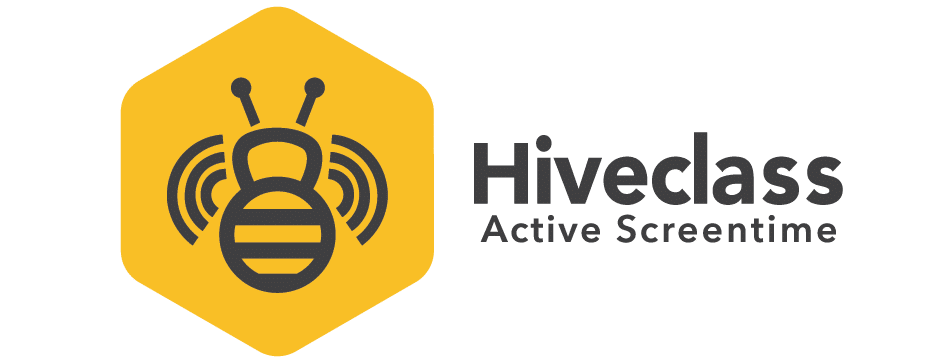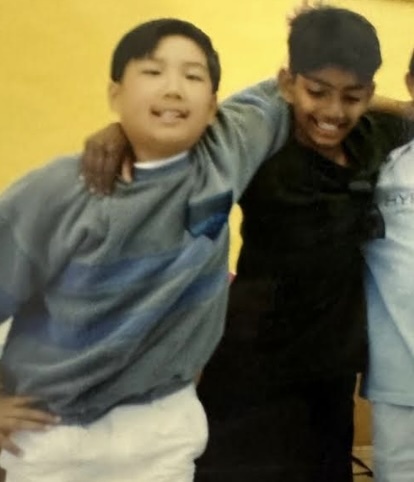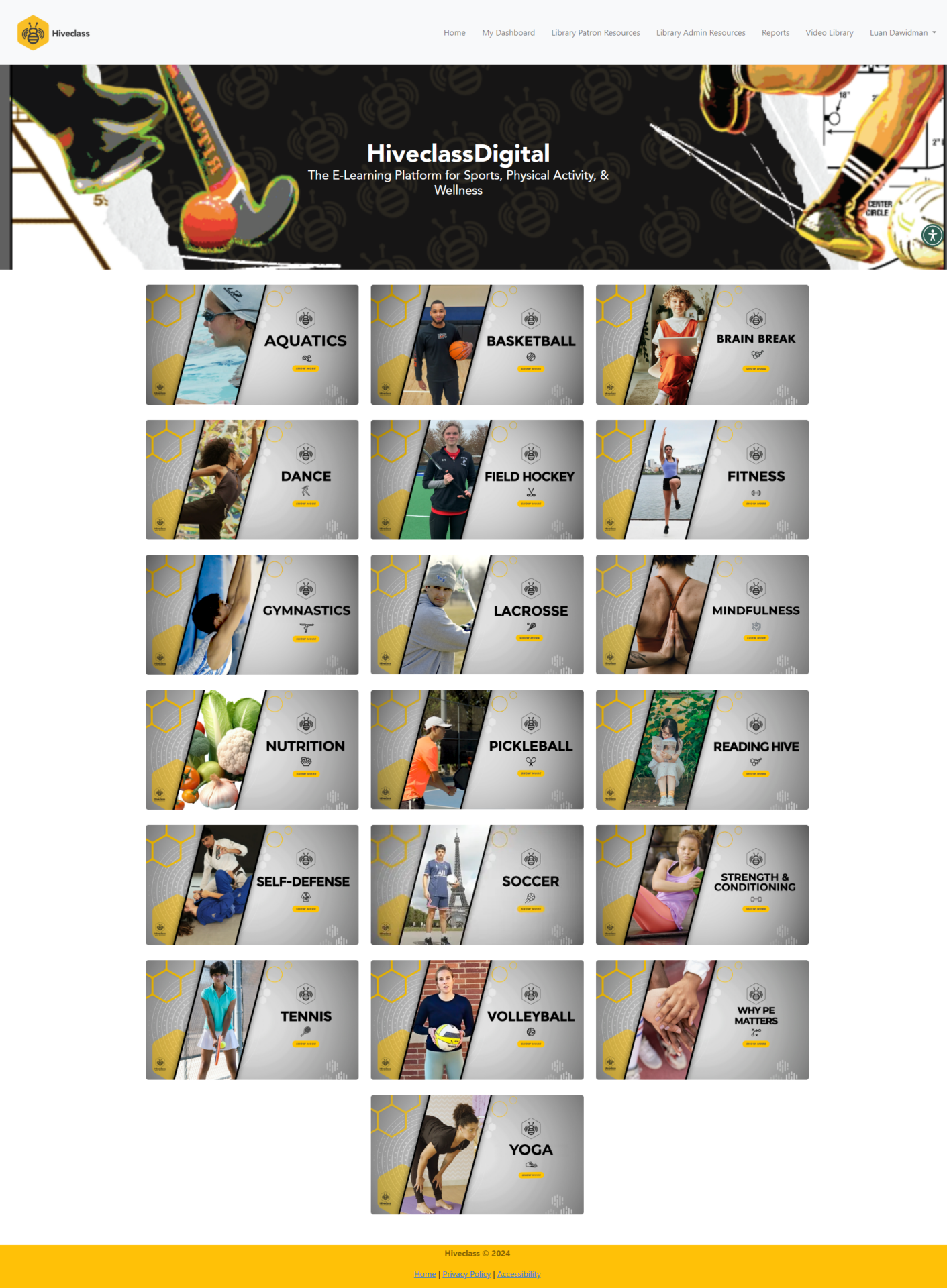Interviewing Joe Titus of Hiveclass
 Written by Dr. Noah Lenstra
Written by Dr. Noah Lenstra
Recently, I had the opportunity to sit down with Joe Titus, CEO and Co-Founder of Hiveclass, a digital platform utilizing technology to provide access to quality instruction and education in a variety of sports and wellness activities. Hiveclass works actively with libraries across America, and so I was thrilled to talk with Joe about his background and the company.
Noah Lenstra: I’ve heard you are a self-professed library kid, and that you have served on the library Board of Trustees and Friends group. Could you tell me a little about how libraries have and are part of your life, your family’s life, and your community life?
Joe Titus: I’ll rewind to why I was a library kid. Hiveclass co-founder Paul Suhr and I have known each other since second grade. We grew up in a great community in Southern California, and went to school together from 2nd to 5th grade.

Paul Suhr and Joe Titus, the co-founders of Hiveclass, lifelong library supporters, patrons, and partners
Between the day I was born and when I turned 11, I lived in almost 11 homes, apartments or condominiums. There was some instability: My parents got divorced, and we moved around a lot, but mostly within the same community.
When we became old enough — around the age of 10 or so — our parents would drop us off at the library, and we were able to be in a safe space. Our parents thought we were just studying, right? But being at the library gave us the ability to be by ourselves for the first time, and doing things for the first time with some independence. I just have these fond memories of the library as a young kid.
Then, fast forward to my own experience as a parent with kids. We were living in New York City and we had a second home and I spent five nights a week living in NYC and two nights a week at the second home for a good 6-7 years, and from the time my son was 3-4 months old we started going to the local library on the weekends. There were so many great experiences for him.
In part because of his early experiences at the library, my son Oliver starts reading at four years old. He became such a reader that I have a video of him at the library reading to one-and two-year olds at the library.
The library became super important to our family.
During COVID, I was the President of the Friends of the Library group: They wanted to try and find younger donors and so they had asked me a couple years before to join the friends and then they asked me to be the President. I was one of the younger friends at the time. My last great accomplishment was I started the little friends of the library, which does a lemonade stand led by kids at our local library every year. We’ve done that for four years now!
Once we fully decamped from the City and became residents of the town, they asked me to join the Board of the local library, and I said sure, and that’s very briefly the story of libraries and my life.
Noah Lenstra: Amazing! Thanks for sharing that story. Now, shifting to Hiveclass and libraries: As you all were building its education product, could you tell me what led you to think of libraries as a perfect partner?

Joe Titus, co-founder of Hiveclass, now
Joe Titus: That is part of our startup journey. I have a mentor and he’s an investor who said that when you come up with a startup and you think you hit the “aha” moment, it’s sort of like the gold rush. As a start-up, our first idea was Peloton for kids, but we wanted to make it educational and accessible. Peloton is very expensive and so our thesis was we could do a lot of what they did, but make it super affordable to democratize access to quality physical education and sports education.
This was personal for me because living in New York City at the time I saw that a tennis lesson for five-year-olds could cost $150, and that really bothered me. At the same time, I was my son’s soccer coach and when I got the bill for him it shocked me. I thought ‘how does a family that lives in public housing pay for this?’
Bloomberg did an article this summer on it, and the participation rates in youth sports continue to keep going down.
So I thought, based on my involvement as the President of the Friends of the Library at the time, is there a way we could sell Hiveclass in libraries? I sent a note to the head librarian of my local library, and after a two hour session, we discussed how it would need to work in libraries, and from there I convinced our investor group to go after this market.
Noah Lenstra: Now that Hiveclass works with libraries across America, has anything surprised you about the experience of working with libraries?
Joe Titus: Libraries are a really important part of your community, whether that’s in California, in New York, or anywhere in between. Like the rest of the world, libraries have incorporated a lot of technology, but haven’t fully gotten there yet. That’s something that has been surprising.
I’ll give an example. In Fall 2021, when we were starting to build our library product, we’re in New York City with the Hiveclass leadership team. During that, we actually walked into a really nice New York Public Library branch and I asked the team to just walk in and look. We didn’t talk, we just observed. And one of the things I observed was they had this great room with books and shelves everywhere. There were a handful of tables in the middle, all equally spread out, with two to four people at each table, and everyone was on their computers or device, and not a single book.
Seeing that, it struck me as an opportunity and a challenge at the exact same time. Our hope is that libraries across the country are going to evolve, and so how does Hiveclass fit into that? Now there are communities doing a lot more in their libraries than just books.

What Hiveclass for libraries looks like
I think about lending sports equipment: What if a library gave out tennis balls and tennis rackets for two weeks at a time? Then people could use other public spaces to go play tennis, right? That then solves some of the challenges that some families face. If libraries can flip the script and really focus on being these beacons for their communities really thinking about health, wellness and other activities, and not only reading.
Reading is super important, that will always be the focus, but there are so many other opportunities.
For us it’s the idea of third spaces, the idea of being able to offer our product in multiple languages. Today,we’re in two languages. We think we can do this in many, many more and in certain parts of the country, I think that’s extremely important.
Noah Lenstra: Thinking to the future, let’s imagine what things could look like 5 or 10 years from now, in the ideal world how would you like to see Hiveclass and libraries working together?
Joe Titus: Health and wellness is at the top of mind, whether that’s for children or all ages. We’ve gotten so much feedback around our yoga product, for example, as being something that works well in libraries. So many libraries have a yoga instructor come in once a month, once a week. And there are those that want to add fitness, dance, or mindfulness programs but are unable to due to instructor fees (especially for libraries with multiple branches) or for lack of teachers in rural parts of the country. But now they can offer it digitally with Hiveclass offering the instruction. It’s really affordable, and they could offer Yoga almost everyday. Then, regardless of socioeconomic status, zip code, or background, all people could have access to great health and wellness opportunities through in-person programs at the library as well as continuing the practice at home.
We think that libraries and other public institutions have the ability to level the playing field for things like that over the next five to ten years and even further. We want to be a part of the evolution of libraries.
At the end of the day, we want to be a partner with public institutions like libraries. How can we collectively — both the public and the private sectors — come together to help solve these challenges? We are in this for the long haul, and we want to have a world where patrons of all ages are able to explore sports, discoverer the joy of moving, and be able to stay active at home or in their backyard, without feeling like they don’t have the instruction at their fingertips, because it is there. We package it, and curate it for them to be able to use.
